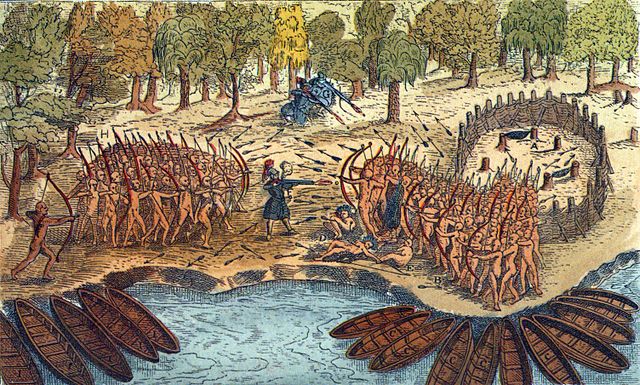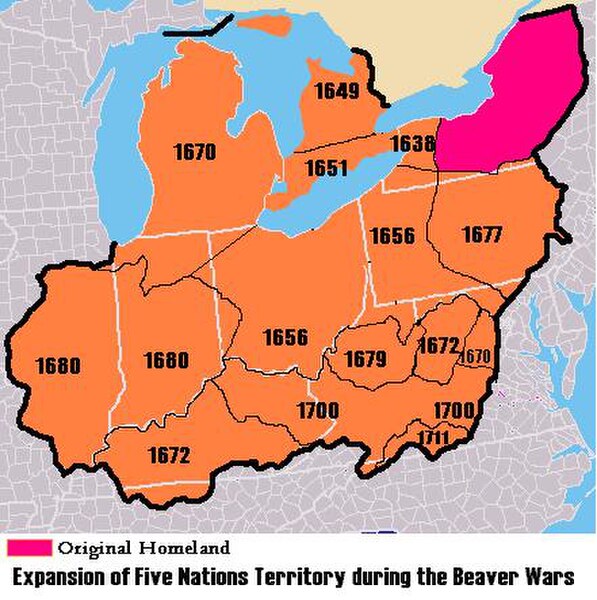The Beaver Wars, also known as the Iroquois Wars or the French and Iroquois Wars were a series of conflicts fought intermittently during the 17th century in North America throughout the Saint Lawrence River valley in Canada and the Great Lakes region which pitted the Iroquois against the Hurons, northern Algonquians and their French allies.
As a result of this conflict, the Iroquois destroyed several confederacies and tribes through warfare: the Hurons or Wendat, Erie, Neutral, Wenro, Petun, Susquehannock, Mohican and northern Algonquins whom they defeated and dispersed, some fleeing to neighbouring peoples and others assimilated, routed, or killed.
Champlain's Battle with the Iroquois, Ticonderoga, July, 1609, an 1898 illustration by Jean Leon Gerome Ferris
Firearms from Dutch traders allowed the Iroquois to wage effective campaigns against the Algonquin and the Huron.
New France's governor Charles de Montmagny rejected peace with the Mohawks in 1641 because it would imply abandonment of their Huron allies.
Depiction of Adam Dollard des Ormeaux (standing, center) during the Battle of Long Sault, May 1660
The Iroquois, also known as the Five Nations, and later as the Six Nations from 1722 onwards; alternatively referred to by the endonym Haudenosaunee are an Iroquoian-speaking confederacy of Native Americans and First Nations peoples in northeast North America. They were known by the French during the colonial years as the Iroquois League, and later as the Iroquois Confederacy, while the English simply called them the "Five Nations". The peoples of the Iroquois included the Mohawk, Oneida, Onondaga, Cayuga, and Seneca. After 1722, the Iroquoian-speaking Tuscarora people from the southeast were accepted into the confederacy, from which point it was known as the "Six Nations".
Photo of an Iroquois woman in 1898.
Engraving based on a drawing by Champlain of his 1609 voyage. It depicts a battle between Iroquois and Algonquian tribes near Lake Champlain, with interference by the colonialists.
Iroquois conquests 1638–1711
The four "Mohawk Kings" who travelled to London in 1710.







